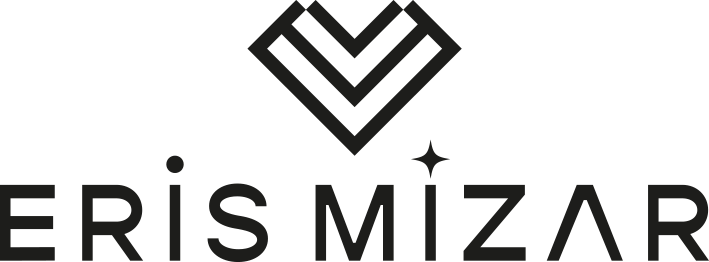It’s important to note that some EAs only provide tax services and don’t handle other bookkeeping and accounting work. They may also pursue certifications to demonstrate they have the expertise required to serve their clients. Sure, most small-business owners don’t start businesses because they’re accounting experts. But keeping accurate books and understanding what the bookkeeping vs accounting numbers mean can spell the difference between business success and failure.
Financial Auditor
Knowing the difference between bookkeeping and accounting is essential for managing your business’s finances effectively. While both play a crucial role in financial management, they serve different purposes. Accepted Accounting Principles (GAAP) or International Financial Reporting Standards (IFRS). This knowledge allows them to adhere to the required accounting standards, accurately prepare financial statements, and ensure compliance with regulatory requirements.
Deciding between a bookkeeper and an accountant depends on your business’s financial needs. Bookkeepers handle the day-to-day financial tasks, ensuring accurate records of income, expenses, and invoices. Accountants take a big-picture approach, using financial data for tax planning, audits, and strategic decision-making. Accounting roles typically require at least a bachelor’s degree in accounting or finance, covering coursework in financial reporting, taxation, auditing, and cost accounting. Many professionals pursue the Certified Public Accountant (CPA) designation, which requires passing the Uniform CPA Examination and fulfilling state-specific experience and ethics requirements. The CPA credential is particularly valuable for roles involving financial audits, tax advisory services, and SEC reporting compliance.
As you can imagine, there are quite a few differences between bookkeepers and accountants, including the level of education each job requires. In a small business or startup, you’ll likely hire a bookkeeper as a part-time employee or an independent contractor. In a business of one (like freelancing or consulting) or a family business, an owner might be responsible for bookkeeping if the financials are very simple.
Time Management and Organization
Their job is to extract insight and compliance from all that data, not just manage it. Lenders, investors, and even tax authorities rarely care about your transaction-by-transaction records—they care about how those records are presented and interpreted. Smart accounting helps your business stay financially stable by anticipating future trends and adapting to market changes. It can help your teams effectively manage resources to navigate both opportunities and challenges ahead.
Practical Integration in Business
The main difference is an accountant usually has more education and a bigger skill set than a bookkeeper. Empowering your financial team with ongoing training and development opportunities is essential for keeping up with the latest industry practices and technologies. For bookkeeping roles, often, a high school diploma coupled with solid communication, writing, and basic math skills is sufficient to get started.
Technology Integration and Process Improvement
They assist in making informed decisions about budgeting, pricing, expansion, and investment strategies. Accountants are responsible for preparing accurate and comprehensive financial statements, including income statements, balance sheets, and cash flow statements. Bookkeeping involves ensuring businesses properly categorize and meticulously record every deposit and withdrawal. This ongoing process offers a clear picture of a company’s financial health at any given time.
Accountants, particularly CPAs (Certified Public Accountants), undergo more extensive education and training. They complete at least a bachelor’s degree in accounting, pass the rigorous CPA exam, and maintain ongoing professional education to stay current with tax laws and accounting standards. This advanced training allows accountants to provide more complex financial analysis and strategic guidance for your business. The synergy between bookkeeping and accounting is about more than their individual roles—it’s about creating a comprehensive financial system. Bookkeeping provides the structure and reliability needed for accurate records, while accounting transforms those records into actionable insights.
- This helps identify discrepancies such as unauthorized charges, missing deposits, or data entry errors.
- Some accountants will choose to pursue their industry credentials as a certified public accountant (CPA), which will influence their earning potential.
- Small business owners often lack the expertise and knowledge in bookkeeping and accounting.
- When businesses adopt accounting software or other financial tools, hiring professionals proficient in using these technologies becomes beneficial.
Bookkeeping, Accounting, and Accountancy: Key Differences Explained
An accountant can help evaluate if switching benefits the business and guide through the process to avoid tax penalties or reporting errors. Businesses that want to grow and attract external financing typically choose accrual accounting. It shows a more reliable picture of long-term performance and cash flow needs. In accrual accounting, businesses record revenue when they earn it, even if they have not yet received payment. Companies recognize income once they deliver a service or ship a product, creating accounts receivable if customers owe money.
Bookkeeping entails recording and arranging financial transactions, whereas accounting involves interpreting and analyzing the financial data gathered in order to provide valuable insights. The education, skills, and career paths also differ, with accountants having more varied opportunities for specialization and advancement. Both fields have stable salaries, but accounting has a better job outlook. Bookkeepers manage the first step of the accounting process by recording financial transactions and maintaining accurate ledgers. Their work ensures accountants can efficiently prepare financial statements and conduct audits to ensure compliance.
- If you don’t need someone to offer financial advice and strategy but want to hire a tax preparer, you could look for someone who’s authorized and trained only in that skill.
- While necessary for maintaining financial records and staying compliant, it’s straightforward in its execution and requirements.
- We can not guarantee its completeness or reliability so please use caution.
Usually, the bookkeeper’s work is overseen by either an accountant or the small business owner whose books they are doing. Now that you understand how bookkeeping and accounting differ, it’s time to decide which one is right for your business. While this decision is personal and depends on your needs and business goals, here are some signs it’s time to outsource your bookkeeping and accounting needs. Unlike accountants, bookkeepers don’t need specific licenses, certifications, or formal education. Many experienced and knowledgeable bookkeepers honed their skills with on-the-job training.
Accountants consolidate trial balances, adjust for accruals and depreciation, and translate ledgers into income statements, balance sheets, and cash-flow reports. Cash gives a short-term picture of your financial health, while accrual gives a longer-term view. In larger companies, it can be necessary to have both a bookkeeper and an accountant. However, employing one of the two may only be required for smaller or simpler operations.


Comments
There are no comments yet.